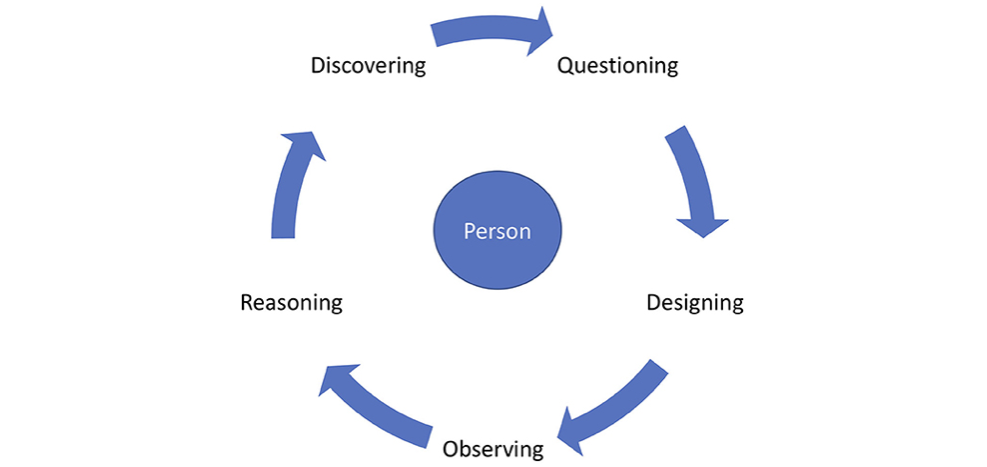A Framework for Personal Science

Gary Wolf
July 2, 2020
Two years ago my colleague Martijn de Groot and I decided to clarify the kinds of self-research practices seen the Quantified Self community by providing a clear conceptual definition. We needed this clarity because our work with academic and biomedical collaborators often involved laborious effort to work through misunderstandings caused by a thicket of “somehow related” terms and labels. For instance: self-tracking, self-experiment, n-of-1 methods, single subject research, citizen science, participatory science, peer-to-peer health, and, of course, quantified self.
The results of our work were published in Frontiers In Computer Science yesterday. Here is an open access link to the full text: A Conceptual Framework for Personal Science.
From the abstract:
This paper introduces a conceptual framework to guide research and education into the practice of personal science, which we define as using empirical methods to pursue personal health questions. Personal science consists of five activities: questioning, designing, observing, reasoning, and discovering. These activities are conceptual abstractions derived from review of self-tracking practices in the Quantified Self community. These practices have been enabled by digital tools to collect personal real-world data. Similarities and differences between personal science, citizen science and single subject (N-of-1) research in medicine are described. Finally, barriers that constrain widespread adoption of personal science and limit the potential benefits to individual well-being and clinical and public health discovery are briefly discussed, with perspectives for overcoming these barriers.
We understand perfectly well that doing self-research doesn’t require a clear definition and label. Nobody needs an explicit framework to justify or explain their own curiosity. But if you have an interest not only in doing personal science, but also in working with clinical research and healthcare in developing of tools and methods that make this practice easier and more accessible, then take it from us: a good definition will be useful. Perhaps not everybody will agree with our definition, but at least you have a chance to start with a clarifying review of what you’re actually trying to talk about.
Why do we care about making our practices more legible to clinical research and healthcare? Our interest was born of necessity. Many people doing self-research depend on support from healthcare practitioners for access to prescription drugs, laboratory assays, physical therapy, mental healthcare, and other biomedical resources. We hope that by providing clear definitions and methodological context we can make it easier for doctors, nurses, and allied health workers to support personal science with clients and patients.
In the paper, we acknowledge that concepts, tools, and process support only go so far. People doing self-research require time to make discoveries and power to act on them. In this respect, support for personal science inevitably touches on broader social issues of democratization and social change. We hope our framework is helpful in furthering this change.
Please read the paper on the Frontiers site and let us know what you think.
CONTACT
Gary Wolf: gary@quantifiedself.com, @agaricus
Martijn de Groot: Martijn.deGroot@radboudumc.nl, @grootm75


